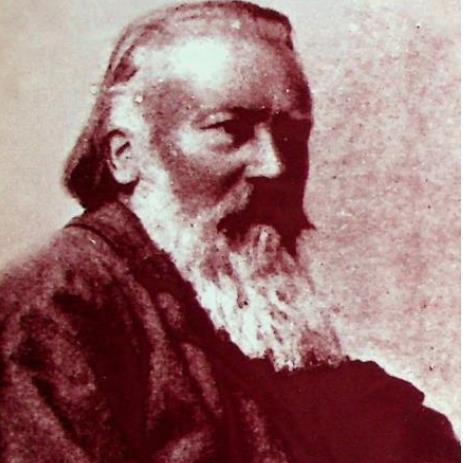In this extract from 1997, Michael Freyhan examines the history behind Brahms’ viola sonatas, including the composer’s doubt that they should even be played on the instrument

This is an extract from the article ’Brahms: the viola’s champion’ that appeared in the May 1997 issue. To read the full article, click here
Let us now consider the two viola sonatas op. 120 written, of course, originally for clarinet. It is through the correspondence with Joachim that we discover the background to the viola version. Brahms to Joachim (14 October 1894): ’Should you be coining to Frankfurt… please let me know. I would come too, and either invite Mühlfeld or bring a viola part for two clarinet sonatas which I should very much like Frau Schumann to hear. Our cosiness would not be disturbed by these unassuming pieces - but it would be nice!’ Joachim replied by return: ’I will be in Frankfurt on 9 November… Please write soon whether I may really look forward to it. It is quite splendid that Mühlfeld has inspired you to further chamber music.’
Richard Mühlfeld was a clarinettist whom Brahms first heard in Meiningen in 1891. Having vowed to write nothing more after the G major String Quintet op.111, Brahms was moved to break his self-imposed retirement with a series of magnificent chamber music works featuring the clarinet - a trio, a quintet and finally these two sonatas. The sonatas are just as much a gift for viola players however, and many insist that the radiant warmth of the viola is even more appropriate to the music than the ‘cool , liquid timbre of the clarinet.’ Unfortunately, this opinion was not shared by Brahms, as we learn from his reply to Joachim (17 October 1894): ‘That’s excellent… I hope Mühlfeld will be able to come — for I fear that the two pieces are very clumsy and ungratifying [sehr ungeschickt und unerfreulich] as viola sonatas’.
It is a harsh judgement. Was Brahms right? The restricted range of the viola certainly necessitated all sorts of rewriting of the wide-ranging clarinet line, often with unsatisfactory solutions. And so far as the change of timbre is concerned, Brahms’s next sentence leaves one in no doubt about his distaste for rearrangements of his music: ’It reminds me of the secret anger I experienced when you told me quite plainly and casually that you had played my clarinet quintet as a violin sonata. Why does one take the trouble to try to write judiciously?’ These sonatas were plainly considered by Brahms to be only ersatz viola music, but one must add a cautious rider that he had probably not yet heard them on the viola.











































No comments yet